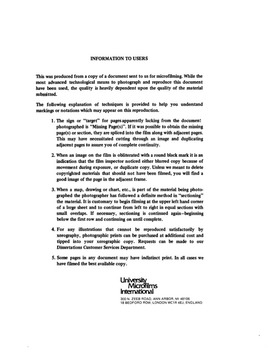| dc.contributor.author | Conkright, Robert Keith, | en_US |
| dc.date.accessioned | 2013-08-16T12:28:20Z | |
| dc.date.available | 2013-08-16T12:28:20Z | |
| dc.date.issued | 1981 | en_US |
| dc.identifier.uri | https://hdl.handle.net/11244/4859 | |
| dc.description.abstract | Rank order scoring was compared to binary scoring to determine the effects of a personal probability scoring system on test anxiety and achievement. Students enrolled in two introductory psychology classes served as examinees, and were classified as either high test anxious or low test anxious on the basis of the Test Anxiety Scale. The first class used rank order scoring on the first three examinations and binary scoring on the last three examinations, and the second class used binary scoring on the first three examinations and rank order scoring on the last three examinations. The Test Anxiety Scale was administered on the second day of class, before the first examination, before the fourth examination, and after the sixth examination. Results indicated that high test anxious examinees showed a significant improvement in performance, but not a decrease in test anxiety. The results suggest that memory-search procedures may cause decreased performance in high test anxious persons and that high levels of anxiety may not interfere with information processing. | en_US |
| dc.format.extent | vi, 23, iii, 29 leaves : | en_US |
| dc.subject | Education, Educational Psychology. | en_US |
| dc.title | Effects of personal probability scoring on test anxiety / | en_US |
| dc.title.alternative | Effects of personal probability scoring on achievement and test anxiety. | en_US |
| dc.type | Thesis | en_US |
| dc.thesis.degree | Ph.D. | en_US |
| dc.thesis.degreeDiscipline | Jeannine Rainbolt College of Education | en_US |
| dc.note | Source: Dissertation Abstracts International, Volume: 42-02, Section: A, page: 0609. | en_US |
| ou.identifier | (UMI)AAI8116750 | en_US |
| ou.group | Jeannine Rainbolt College of Education | |
